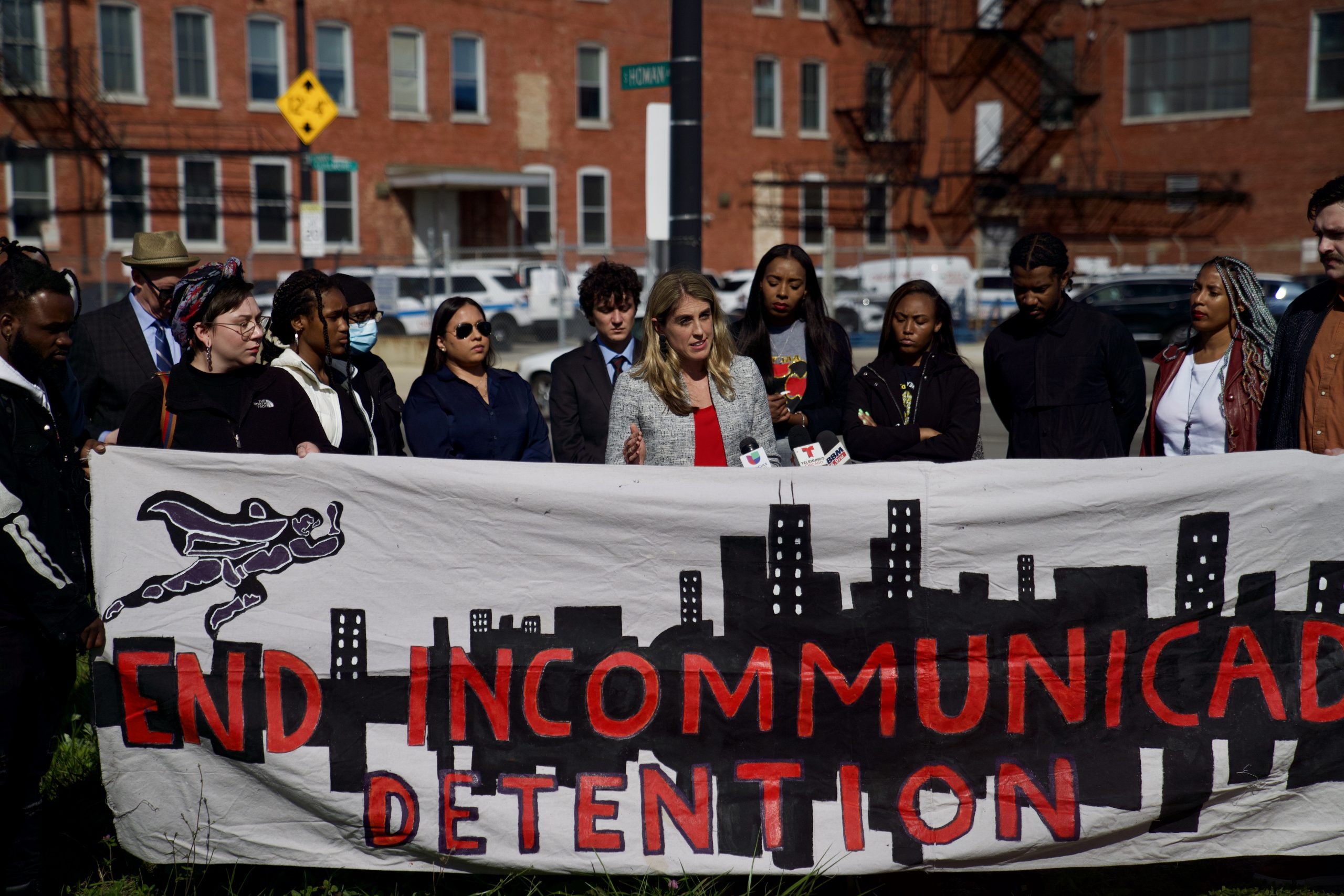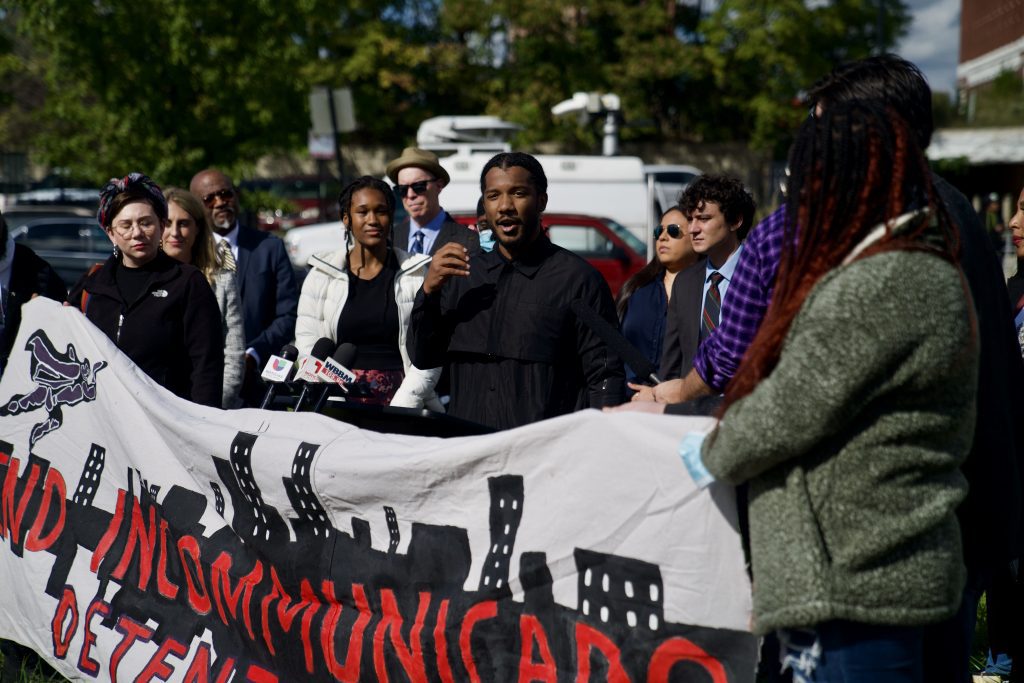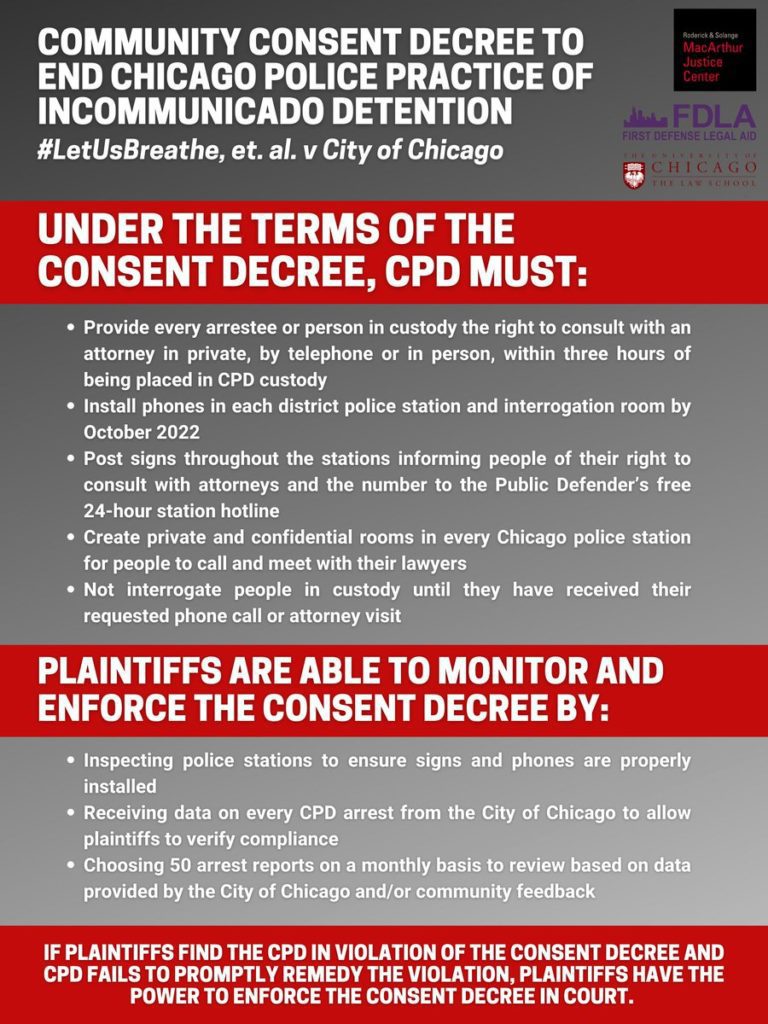New Chicago Decree Holds Police Accountable for Illegal Detention Practices Spanning Decades
A coalition of activists and community groups have secured a court-backed consent decree that will hold the Chicago Police Department accountable for decades-long use of illegal detention practices across the city. The community-led coalition sued the City of Chicago in 2020 for the use of incommunicado detention by the CPD. The consent decree will ensure that the legal rights of anyone in CPD custody are protected.

The consent decree was announced at the site of Homan Square, a police station infamous for abuse and excessive force. The station has become a symbol of the incommunicado detention, an illegal practice whereby individuals in police custody are held without access to a phone or lawyer.
Homan Square was essentially a black site for arrestees to be detained without access to counsel, said Alexa Van Brunt, director of the MacArthur Justice Center’s Illinois office and attorney in this case.
Aside from being illegal and in violation of individual rights, the isolation, uncertainty, manipulation and fear facilitates high rates of coerced confessions. Chicago is the false confession capital of the nation and denying access to counsel is a big part of that, Van Brunt said.
“It is not an accident that over 90% of people were denied access to a phone. It was not an accident that the law was broken by those who believe our promise to uphold law and order,” said Damon Williams, an activist of the #LetUsBreathe Collective, said at the Homan Square press conference.

Under the consent decree, the CPD must install phones in every police station and interrogation room, provide signage for the Public Defender’s free hotline, and create private rooms where individuals can privately consult an attorney, over the phone or in person. The settlement also provides that people in custody must be allowed to communicate with family members and legal counsel within three hours of being taken into custody, in line with the 2021 SAFE-T Act, which provides that individuals in police custody receive up to three phone calls within three hours.
A crucial part of the settlement is the monitoring and enforcement of the consent decree. The City of Chicago must install the phones and signage by February 1, 2023. After that, the plaintiffs will be responsible for enforcement of the settlement through data, inspection, and interviews.
“Real change happens in the monitoring and enforcement period,” Van Brunt said.
This is the second consent decree meant to address abuse within the Chicago Police Department. In Campbell v. City of Chicago, a coalition of activists and attorneys sued the CPD on behalf of thousands of individuals, predominantly Black and Latinx, for systemic use of excessive force.
This new consent decree aims to address systemic misconduct in the post-arrest phase of the criminal justice process. By guaranteeing access to an attorney for all individuals in police custody, the settlement provides a natural check on the CPD’s practices in the post-arrest phase. There will now be outside supervision of a part of the arrest process that previously went unchecked, Van Brunt said.

As the February deadline approaches, the #LetUsBreathe coalition prepares to monitor and enforce the consent decree across the City of Chicago.
While the settlement is indeed a legal triumph, Williams reminded viewers at the press conference that this lawsuit reinforces the most basic rights of individuals in police custody. This milestone is just one part of a long fight against systemic malpractice within the criminal justice system in Chicago.
“I challenge you – those watching, those recording, those documenting – to not just think about this policy and the fact that the judge did the obvious thing today. I challenge you to ask why a judge had to do that in the first place and what does that mean about the institution that we invest billions of dollars into,” Williams said.
Takeaways
-
Chicago is the false confession capital of the nation.
Chicago has two times as many recorded false confessions as any other city in the United States. -
In 2014, only 3 of out 1,000 individuals detained by the CPD ever spoke to a lawyer
during their time in police custody, according to a 2016 report from the Chicago Police Accountability Task Force. -
In a 2020 survey of bond court, nearly a quarter said they never spoke to a lawyer
Those who did waited on average 4.2 hours for a phone call. -
The City of Chicago must install phones and signage for attorney hotline by February 1, 2023.
The Consent Decree empowers plaintiffs to monitor and enforce the city’s compliance.
